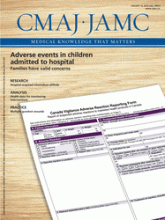Canada needs patient friendly politicians like Nicola Sturgeon or Edwina Hart who were instrumental in abolishing parking fees in National Health Service (NHS) hospitals in Scotland and Wales.
A patient who seeks care in a Canadian hospital has to pay for parking. Parking fees amount to a user fee in disguise and flout the health policy objective of the Canada Health Act. In Scotland, parking at NHS hospitals has been free ever since fees were abolished in 2008. “It’s simply not fair to expect patients or visitors to have to pay when they come to hospital, when they may be suffering personal anxiety, stress or grief. Put bluntly, a car parking charge is often the last thing people need.”1 This was the view expressed by Nicola Sturgeon, Scottish Cabinet Secretary for Health, Wellbeing, and Cities Strategy, when parking fees were abolished in Scottish NHS hospitals. “This move would help reaffirm the NHS’s founding principle of healthcare free at the point of delivery,” she added.1 While making the same change in Wales, then Welsh Minister for Health and Social Services Edwina Hart said, “Today’s car parking changes mean the start of a fairer and more consistent policy for hospitals across Wales.”2
The founding principles of the NHS are similar to those of the Canada Health Act. The primary objective of Canadian health care policy according to the act is “to protect, promote and restore the physical and mental well-being of residents of Canada and to facilitate reasonable access to health services without financial or other barriers.”3 Such beneficial legislation always needs to be interpreted in favour of patients if we are serious about patient-centred health care.
Parking fees are a barrier to health care and add avoidable stress to patients who have enough to deal with. They can and sometimes do interfere with a clinical consultation, reducing the quality of the interaction and therefore of care. Almost every hospital doctor in Canada would be able to narrate anecdotes of patients being preoccupied with parking fees. Such distraction interferes with the clinical consultation. For example, some patients (who have often waited several weeks to see a doctor) try to end a consultation abruptly when they realize that they will have to pay for an additional hour for parking. This is parking-centred health care, which is not compatible with patient-centred health care.
Given Canada’s size, many patients who visit hospitals have to travel great distances. Local public transport is not an option for them. They must travel by car and park at hospitals. Little needs to be said about the plight of patients undergoing regular dialysis or chemotherapy who need to make an endless number of trips to the hospital. And what about parents who have to drive sick children to hospital?
Ingenious reasons for continuing to charge for parking have been offered by some in office. For example, while refusing to scrap parking charges in England, Minister of State for Health Simon Burns said: “Even if funding was available, the policy is unworkable. It would require costly policing to ensure there was no abuse of free parking, and there would be even more of a scramble for limited parking spaces. There are better uses of public money.”4
Canadian policy-makers have an option. Should they do the right thing for their patients by following the lead of Nicola Sturgeon and Edwina Hart, or should they spend their intellectual energy to find even more ingenious excuses than those offered by Simon Burns?
Hospital administrators and politicians will argue that they will lose a valuable source of essential revenue if parking fees are abolished and will look to ministers to make good such losses. Though hospitals rake in several million dollars from parking fees, the net revenue from parking is likely to be around 1% of the total revenue. For example, for The Ottawa Hospital, for the fiscal year 2011/12, the net parking revenue is projected at $10.8 million while the total revenue is about $1.16 billion, excluding revenue from parking. That is a small sum to pay to get rid of parking-centred health care. Those opposed to scrapping parking fees for patients need to recognize that such fees are, for all practical purposes, user fees and a barrier to health care. Using revenue generated from such surrogate user fees for health care is against the health policy objective of the Canada Health Act and could become the subject of a legal challenge.
A more civilized society might offer volunteer-run valet parking services for patients, but I admit that we are far from this utopia. Let us start by validating our patients’ parking. This would be an important step for patient-centred health care.
Footnotes
-
Competing interests: See www.cmaj.ca/site/misc/cmaj_staff.xhtml








